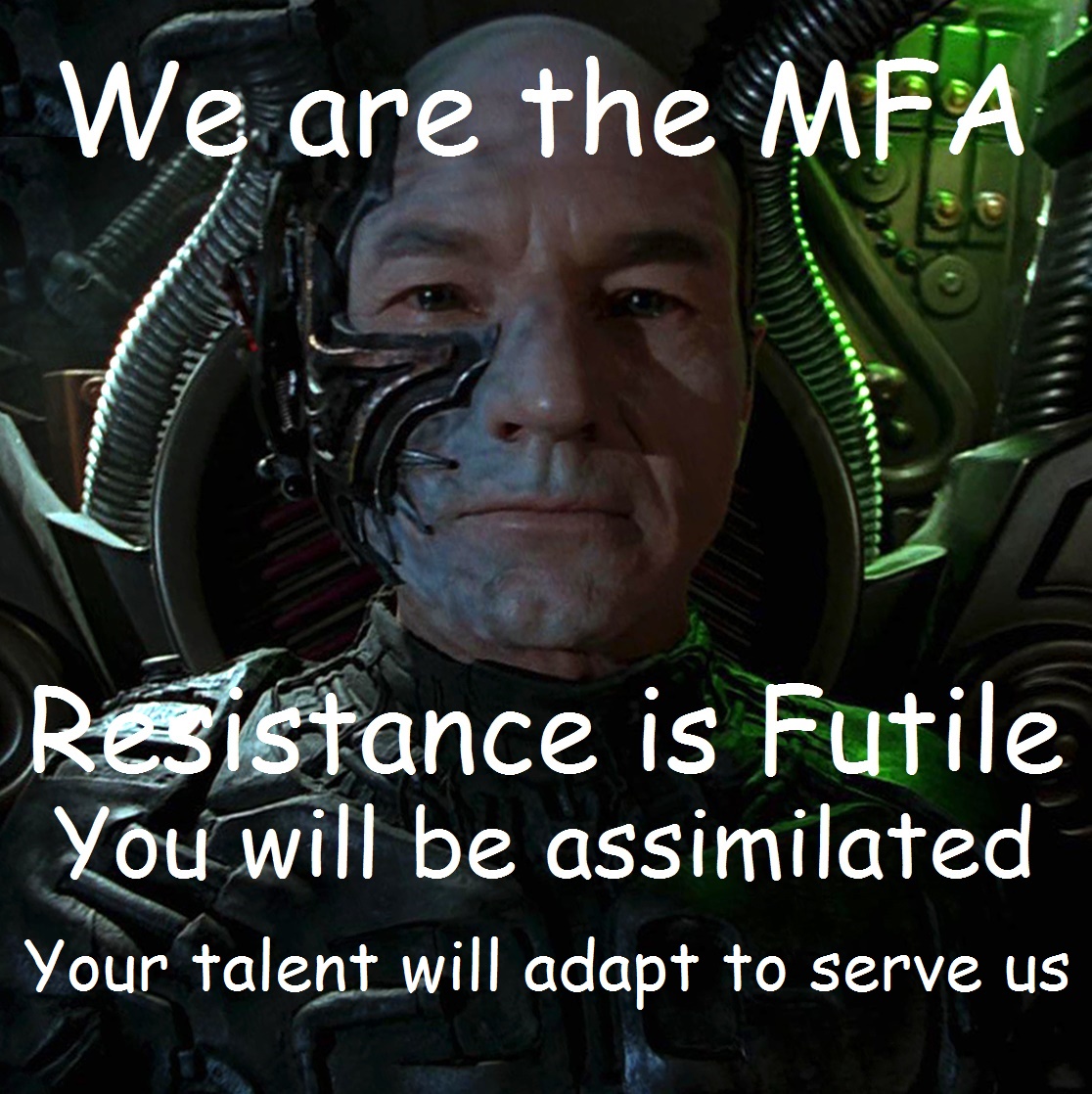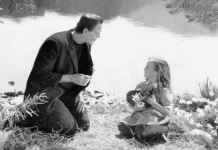 Controversy reigns over the value of a Masters of Fine Arts degree in Creative Literature, and what the whole MFA system is doing to literature. But at least there is a public controversy now, instead of some vague acceptance that the MFA treadmill is a Good Thing that is creating Great American Literature. And now, as outlined in The Atlantic, “two professors of language and literature who regularly use computation to test common assumptions about culture” have written and run “a program to analyze hundreds of works by authors with and without creative-writing degrees.” The results are revealing – and often depressing.
Controversy reigns over the value of a Masters of Fine Arts degree in Creative Literature, and what the whole MFA system is doing to literature. But at least there is a public controversy now, instead of some vague acceptance that the MFA treadmill is a Good Thing that is creating Great American Literature. And now, as outlined in The Atlantic, “two professors of language and literature who regularly use computation to test common assumptions about culture” have written and run “a program to analyze hundreds of works by authors with and without creative-writing degrees.” The results are revealing – and often depressing.
Richard Jean So, assistant professor of English at the University of Chicago, and Andrew Piper, associate professor of languages, literatures, and cultures at McGill University, “decided to examine to what extent writing from MFA graduates differs from writing by non-graduates. We collected a sample of 200 novels written by graduates of MFA programs from over 20 leading programs … that have been published in the last 15 years … we also collected a similarly sized group of novels published over the same time period by authors who haven’t earned an MFA degree.” And they tested for indicators of “two cultures” in writing – privileged MFA authors, versus the Great Unwashed, and Un-WASP.
The researchers looked for differences in diction and word choice. Result: “no real difference between MFA and non-MFA works.” Style? “There’s nothing detectably unique about the so-called ‘MFA style’.” Does the MFA system entrench race and gender privilege? Again, no evidence. But what the numbers on gender do suggest above all is a serious distortion in American literature as a whole. “The percentage of novels that have a majority of male characters in the non-MFA group is 99 percent, whereas it is 96 percent for MFA novels. These are terrible numbers by any standard. They suggest that the contemporary American novel is disproportionately preoccupied with the experiences of men.”
And where is that distortion being applied? Perhaps there’s an indicator in one potential sampling error in the survey. “We only gathered novels by non-MFA writers that were reviewed in The New York Times, which we took as a mark of literary excellence,” the authors note. Well, perhaps that’s a mark of something other than literary excellence – Franzenism and conservative literary snobbery, perhaps? Maybe the problem isn’t MFA but NYT?
Also, as others have argued elsewhere, the point of MFA isn’t about the writing itself: It’s about access, networks, literary cred, dues. As So and Piper put it, “it’s about gaining entrance to the club.” In other words, yes, advantage and privilege. The chance to pay to be more successful at sounding exactly like everyone else.
Some of the most revealing numbers quoted by the authors aren’t about MFA-spawned literature at all. As the authors note, “only 7 percent of MFA graduates are fully funded, which means 93 percent are investing some portion of their money to sound like everyone else.” In other words, MFA courses are contributing nothing at the level of actual writing. Yet, as So and Piper add, about 20,000 students applied to study MFAs in the U.S. in 2016, with over 350 course options at graduate level alone – part of an industry earning at least $200 million a year. That represents a huge volume of entrenched interests on behalf of the MFA machine. And in America, money talks. And resistance is futile.


































[…] The article has attention, mostly in the form of posted quotes, link-shots, and snarky reddit replies, but substantial commentary on it is available from Electric Literature, Melville House, Hyperallergic, and Teleread. […]